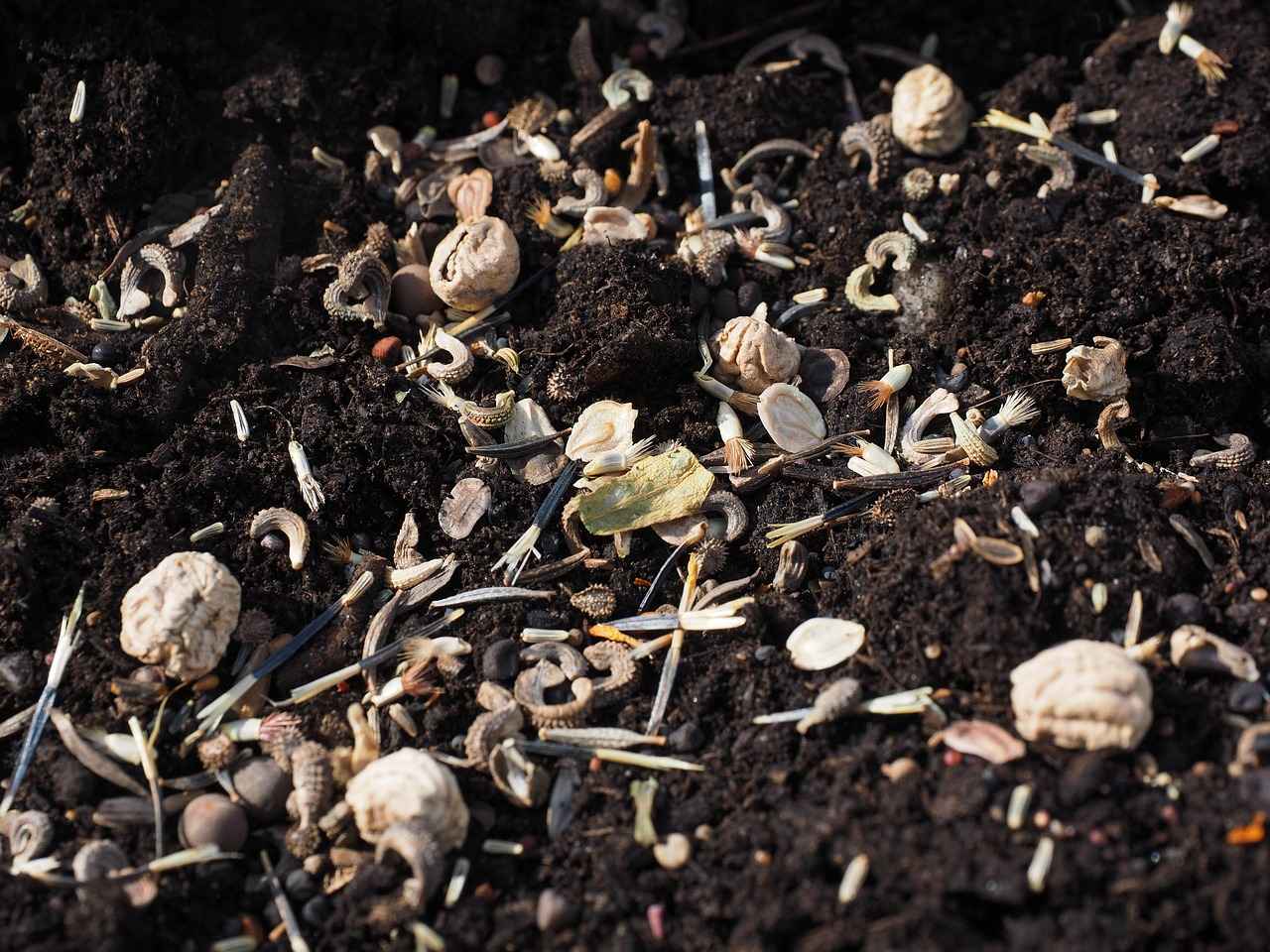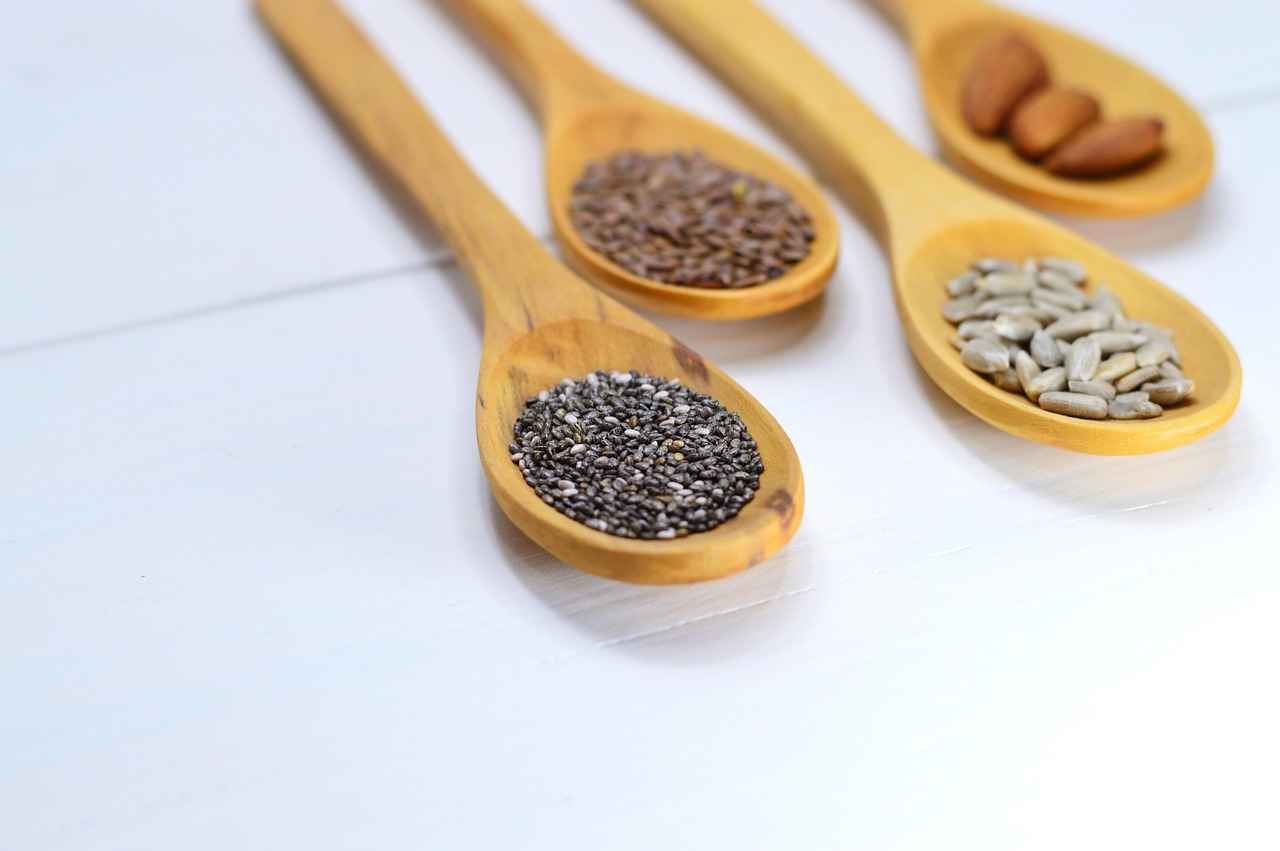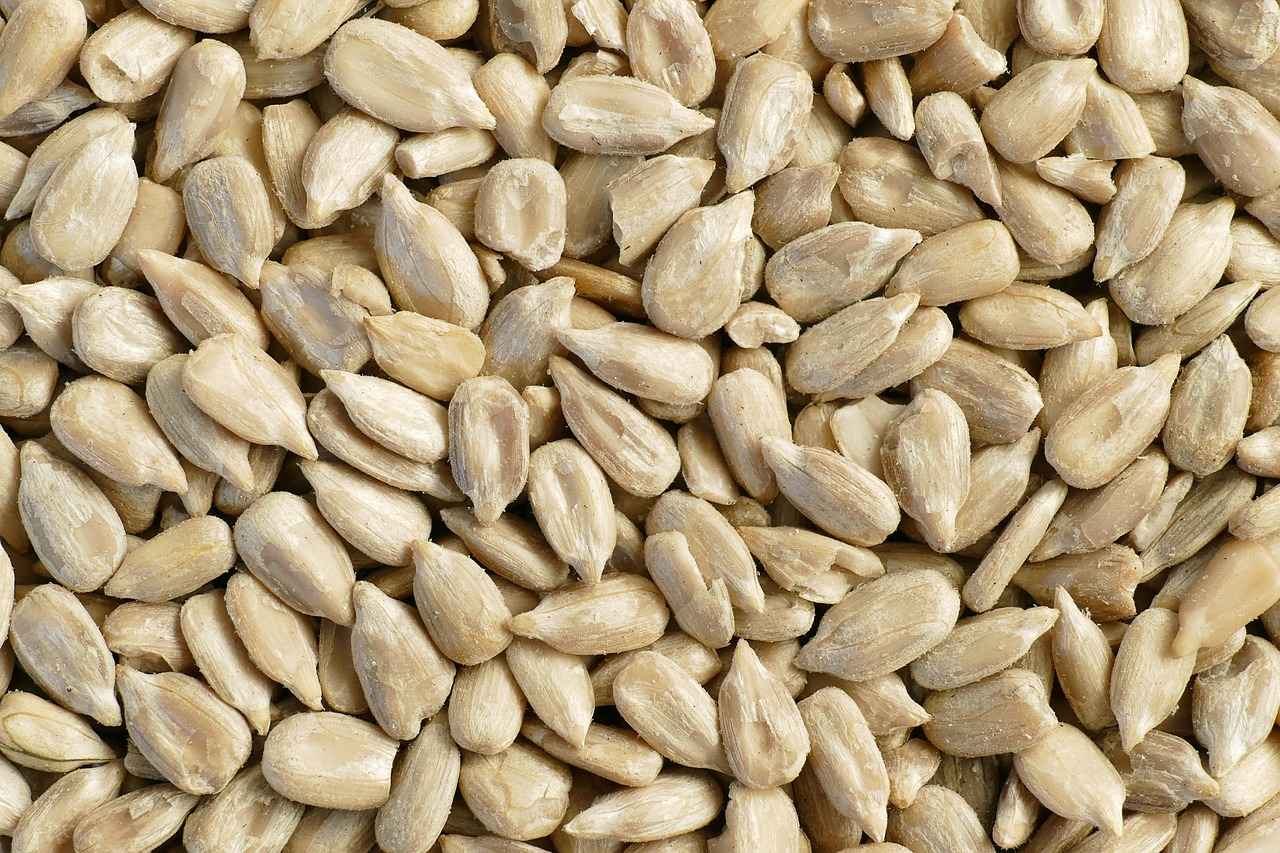Chia seeds are small, nutrient-dense seeds derived from the Salvia hispanica plant, which is native to Mexico and Guatemala. These seeds have gained popularity as a superfood due to their numerous health benefits and impressive nutritional profile. In this article, we will delve into the various ways chia seeds can enhance your overall health and well-being.
Chia seeds are a powerhouse of essential nutrients. They are particularly rich in:
- Omega-3 Fatty Acids
- Dietary Fiber
- Protein
- Vitamins and Minerals such as calcium, magnesium, and phosphorus
One of the standout features of chia seeds is their high content of omega-3 fatty acids. These essential fats play a crucial role in:
- Heart Health: They help lower cholesterol levels, reduce inflammation, and support overall cardiovascular function.
- Brain Function: Omega-3s are vital for cognitive health, potentially reducing the risk of neurodegenerative diseases.
Chia seeds are an excellent source of dietary fiber, which is essential for maintaining digestive health. The fiber content aids in:
- Promoting Regular Bowel Movements: The soluble fiber in chia seeds absorbs water, forming a gel-like substance that helps regulate digestion.
- Weight Management: High fiber intake can create a feeling of fullness, helping to control appetite and reduce calorie intake.
Chia seeds are rich in calcium, which is crucial for maintaining strong bones. Additionally, they contain other minerals such as magnesium and phosphorus that work together to promote bone density and strength.
Incorporating chia seeds into your diet can assist in regulating blood sugar levels. Their high fiber content slows down the digestion of carbohydrates, leading to more stable blood sugar levels and reducing the risk of spikes and crashes.
Chia seeds are incredibly versatile and can be easily added to various meals:
- Chia Pudding: Mix chia seeds with milk or a dairy-free alternative and let them sit overnight.
- Smoothies: Add a tablespoon of chia seeds for an extra nutritional boost.
- Baking: Incorporate chia seeds into muffins or bread for added texture and nutrients.
While chia seeds are generally safe for most individuals, it is important to consider the following:
- Those with certain medical conditions or on specific medications should consult a healthcare professional.
- Chia seeds should be consumed with adequate water, as they can absorb significant amounts of liquid.
In summary, chia seeds are a nutrient-rich superfood that can significantly enhance your diet and overall health. By incorporating them into your meals, you can take advantage of their numerous health benefits, including improved heart health, better digestion, and enhanced bone strength.

What Are Chia Seeds?
Chia seeds, derived from the Salvia hispanica plant, are tiny black seeds that have gained immense popularity in recent years due to their remarkable health benefits and nutritional density. Native to Mexico and Guatemala, these seeds have been a staple in the diets of ancient civilizations, including the Aztecs and Mayans, who recognized their potential long before modern science validated their benefits.
Chia seeds are a powerhouse of essential nutrients. They are particularly rich in:
- Omega-3 Fatty Acids: Among the best plant-based sources, omega-3s are crucial for heart and brain health.
- Dietary Fiber: Chia seeds contain a high amount of soluble and insoluble fiber, promoting digestive health.
- Protein: They provide a complete protein source, containing all nine essential amino acids.
- Micronutrients: These tiny seeds are packed with calcium, magnesium, phosphorus, and antioxidants.
The omega-3 fatty acids found in chia seeds play a vital role in maintaining cardiovascular health. They help to:
- Lower triglyceride levels
- Reduce blood pressure
- Decrease the risk of heart disease
Incorporating chia seeds into your diet can be a simple yet effective way to support your heart health.
Due to their high fiber and protein content, chia seeds can be beneficial for those looking to manage their weight. The fiber in chia seeds absorbs water, expanding in your stomach and creating a feeling of fullness. This can help control appetite and reduce overall calorie intake, making them a useful tool in weight loss strategies.
The soluble fiber in chia seeds forms a gel-like substance when mixed with water, which helps regulate bowel movements and improves gut health. This property can reduce the risk of digestive issues such as constipation and bloating.
In addition to their heart and digestive benefits, chia seeds may also:
- Help regulate blood sugar levels
- Support bone health due to their calcium content
- Provide antioxidants that combat oxidative stress
Chia seeds are incredibly versatile and can be easily added to various dishes. Here are some practical ways to include them in your meals:
- Sprinkle on salads for added crunch
- Blend into smoothies for a nutrient boost
- Use in baking as a healthy ingredient
Here are a few simple recipes to make incorporating chia seeds into your diet enjoyable:
- Chia Pudding: Mix chia seeds with almond milk and let sit overnight for a delicious breakfast.
- Energy Bars: Combine chia seeds with nuts, honey, and oats for a nutritious snack.
- Chia Oatmeal: Add chia seeds to your morning oatmeal for extra fiber and protein.
While chia seeds are generally safe for most individuals, it is essential to consult with a healthcare professional if you have specific medical conditions or are on certain medications. Additionally, consuming them in moderation is advised, as excessive intake may lead to digestive discomfort.

What Nutrients Are Found in Chia Seeds?
Chia seeds are often hailed as a superfood due to their remarkable nutritional profile. These tiny seeds, derived from the Salvia hispanica plant, are not just a trendy health food; they are a powerhouse of essential nutrients that can significantly benefit your overall health. In this section, we will explore the key nutrients found in chia seeds and how they contribute to a balanced diet.
Chia seeds are an exceptional source of a variety of nutrients, making them a valuable addition to any diet. They are particularly rich in:
- Omega-3 Fatty Acids: Chia seeds are one of the best plant-based sources of omega-3 fatty acids, specifically alpha-linolenic acid (ALA). These essential fats are crucial for maintaining heart health and supporting brain function.
- Dietary Fiber: With a high fiber content, chia seeds promote digestive health and help regulate bowel movements. They can absorb up to 12 times their weight in water, creating a gel-like substance that aids in satiety.
- Protein: Chia seeds provide a complete source of protein, containing all nine essential amino acids. This makes them an excellent choice for vegetarians and vegans looking to boost their protein intake.
- Micronutrients: These seeds are packed with vital vitamins and minerals, including calcium, magnesium, phosphorus, and antioxidants. These nutrients play a significant role in bone health, energy production, and reducing oxidative stress in the body.
The omega-3 fatty acids found in chia seeds have numerous health benefits. They are known to:
- Reduce Inflammation: Omega-3s help decrease inflammation in the body, which can lower the risk of chronic diseases.
- Improve Heart Health: Regular consumption of omega-3 fatty acids can lead to lower blood pressure, reduced triglyceride levels, and a decreased risk of heart disease.
- Support Brain Function: These fatty acids are essential for brain health, potentially improving cognitive function and reducing the risk of neurodegenerative diseases.
The high fiber content in chia seeds is beneficial for maintaining a healthy digestive system. Here’s how:
- Promotes Regularity: The soluble fiber in chia seeds helps to regulate bowel movements, preventing constipation.
- Aids in Weight Management: By absorbing water and expanding in the stomach, chia seeds can promote a feeling of fullness, which may help control appetite and reduce overall calorie intake.
Chia seeds are not only rich in macronutrients but also boast a variety of important micronutrients:
- Calcium: Essential for bone health, chia seeds provide a substantial amount of calcium, which is particularly beneficial for those who do not consume dairy products.
- Magnesium: This mineral plays a vital role in over 300 biochemical reactions in the body, including energy production and muscle function.
- Antioxidants: Chia seeds are loaded with antioxidants that help combat oxidative stress and inflammation, protecting the body from various diseases.
In summary, chia seeds are a nutritional powerhouse, offering a rich source of omega-3 fatty acids, fiber, protein, and essential vitamins and minerals. By incorporating chia seeds into your diet, you can enhance your overall health and well-being.
Omega-3 Fatty Acids
When it comes to nutritional powerhouses, few foods can compare to chia seeds. These tiny seeds not only enhance your meals but also provide a plethora of health benefits, particularly due to their rich content of . This article delves into the significance of omega-3s found in chia seeds and their impact on overall health.
Omega-3 fatty acids are a type of polyunsaturated fat that are essential for human health. They play a crucial role in heart health, brain function, and reducing inflammation. The body cannot produce omega-3 fatty acids on its own, which is why they must be obtained through diet.
Incorporating omega-3 fatty acids into your diet can significantly benefit your cardiovascular system. Studies have shown that these fats can:
- Lower triglycerides: High levels of triglycerides are a risk factor for heart disease. Omega-3s can help reduce these levels.
- Reduce blood pressure: Regular consumption of omega-3s can lead to lower blood pressure in individuals with hypertension.
- Decrease the risk of heart disease: Omega-3s can help prevent the formation of plaque in arteries, thus reducing the risk of heart attacks and strokes.
The brain is composed of nearly 60% fat, and a significant portion of that fat is made up of omega-3 fatty acids. These nutrients are essential for:
- Improving cognitive function: Regular intake of omega-3s has been linked to improved memory and learning capabilities.
- Reducing the risk of neurodegenerative diseases: Research suggests that omega-3s may help protect against diseases such as Alzheimer’s and dementia.
Chronic inflammation is a contributing factor to many diseases, including heart disease and arthritis. Omega-3 fatty acids are known to:
- Lower inflammatory markers: Consuming omega-3s can reduce levels of substances in the body that promote inflammation.
- Support joint health: For individuals with arthritis, omega-3s can help alleviate joint pain and stiffness.
Chia seeds are one of the best plant-based sources of omega-3 fatty acids. Here are some easy ways to add them to your diet:
- Chia pudding: Soak chia seeds in almond milk or coconut milk overnight for a nutritious breakfast.
- Smoothies: Add a tablespoon of chia seeds to your favorite smoothie for an extra nutrient boost.
- Baking: Incorporate chia seeds into your baked goods, such as muffins or bread, for added texture and nutrition.
While omega-3 fatty acids are generally safe for most people, it is important to consume them in moderation. High doses can lead to potential side effects, including:
- Increased bleeding risk: Omega-3s can thin the blood, which may be a concern for individuals on blood-thinning medications.
- Gastrointestinal issues: Some people may experience digestive discomfort when consuming high amounts of chia seeds.
In conclusion, chia seeds are an excellent source of omega-3 fatty acids, offering numerous health benefits, particularly for heart and brain health. By incorporating these tiny seeds into your diet, you can enhance your overall wellness and enjoy their myriad of advantages.
How Do Omega-3s Impact Heart Health?
Understanding the Role of Omega-3 Fatty Acids in Heart Health
Omega-3 fatty acids are essential fats that play a critical role in maintaining heart health. Among the various sources of omega-3s, chia seeds stand out as a powerful plant-based option. These tiny seeds are not only rich in omega-3s but also provide a plethora of other nutrients that contribute to overall well-being.
Omega-3 fatty acids are a type of polyunsaturated fat that are crucial for various bodily functions. They are categorized into three main types: ALA (alpha-linolenic acid), EPA (eicosapentaenoic acid), and DHA (docosahexaenoic acid). Chia seeds are particularly high in ALA, which is essential for heart health and cannot be produced by the body.
High levels of triglycerides in the blood can lead to an increased risk of heart disease. Studies have shown that incorporating omega-3 fatty acids into the diet can significantly lower triglyceride levels. Chia seeds are an excellent source of omega-3s, helping to reduce these harmful fats in the bloodstream.
Research indicates that omega-3 fatty acids can help lower blood pressure, particularly in individuals with hypertension. This effect is attributed to their ability to improve endothelial function and reduce arterial stiffness. By including chia seeds in your diet, you can take a proactive step towards maintaining healthy blood pressure levels.
Omega-3 fatty acids contribute to heart health in several ways. They help reduce inflammation, lower blood pressure, and improve cholesterol levels. These factors collectively lower the risk of developing heart disease. Regular consumption of chia seeds can thus be a beneficial addition to a heart-healthy diet.
- Improved Heart Rhythm: Omega-3s can help stabilize heart rhythms, reducing the risk of arrhythmias.
- Decreased Plaque Formation: They may also help prevent the buildup of plaque in arteries, promoting better cardiovascular health.
- Enhanced Overall Well-being: Omega-3 fatty acids are linked to improved mood and cognitive function, further supporting a healthy lifestyle.
Integrating chia seeds into your meals is simple and versatile. Here are a few suggestions:
- Add them to smoothies for a nutrient boost.
- Sprinkle them over salads for added crunch.
- Use them in baking recipes, such as muffins or bread.
- Make chia pudding by soaking the seeds in milk or a milk alternative overnight.
Incorporating chia seeds into your daily routine can be a delicious and effective way to harness the heart health benefits of omega-3 fatty acids. With their numerous advantages, chia seeds are a valuable addition to any diet.
What Are the Cognitive Benefits of Omega-3s?
Omega-3 fatty acids are essential fats that play a crucial role in maintaining overall health, particularly when it comes to cognitive function. Research indicates that these fatty acids are vital for brain health, influencing everything from memory to mood. Below, we delve into the significant cognitive benefits of omega-3s, particularly those found in chia seeds.
Studies have shown that omega-3 fatty acids, especially EPA (eicosapentaenoic acid) and DHA (docosahexaenoic acid), are linked to enhanced cognitive performance. These fatty acids are integral to the structure of brain cells and are involved in neurotransmission, which is critical for memory and learning. Regular consumption of omega-3s can lead to improved mental clarity and sharper focus, making them essential for students and professionals alike.
Incorporating omega-3 fatty acids into your diet may also help in reducing the risk of neurodegenerative diseases such as Alzheimer’s and Parkinson’s. Research suggests that individuals with higher levels of omega-3s in their blood have a lower risk of developing these conditions. The anti-inflammatory properties of omega-3s can help protect against the degeneration of brain cells, thereby supporting long-term cognitive health.
Omega-3 fatty acids have been linked to improved mood and emotional well-being. Studies indicate that higher intakes of omega-3s can reduce symptoms of depression and anxiety. This is particularly important in today’s fast-paced world, where mental health challenges are increasingly prevalent. By consuming chia seeds, which are rich in omega-3s, individuals may experience enhanced emotional stability and resilience.
The role of omega-3s is especially critical during childhood and adolescence, as these are periods of significant brain development. Adequate intake of omega-3s can contribute to better cognitive outcomes in children, supporting their learning abilities and academic performance. Parents may consider incorporating chia seeds into their children’s diets to promote healthy brain development.
While fatty fish are often highlighted as primary sources of omega-3s, chia seeds offer an excellent plant-based alternative. A single ounce of chia seeds contains approximately 5 grams of omega-3 fatty acids, making them an easy addition to various meals. Here are some ways to incorporate chia seeds into your diet:
- Add them to smoothies for a nutrient boost.
- Sprinkle on salads for added crunch and health benefits.
- Mix into yogurt or oatmeal for a satisfying breakfast.
- Use them in baking recipes as a substitute for eggs.
Incorporating omega-3 fatty acids into your diet, particularly through sources like chia seeds, can significantly benefit cognitive function and overall brain health. By understanding the importance of these nutrients, individuals can make informed dietary choices that support their mental well-being and cognitive longevity.
High Fiber Content
in chia seeds is one of the key reasons these tiny superfoods are gaining popularity among health enthusiasts. With their impressive ability to promote digestive health and contribute to weight management, chia seeds have become a staple in many diets. But what exactly makes their fiber content so beneficial?
The soluble fiber found in chia seeds plays a crucial role in digestive health. When chia seeds are consumed, they absorb water and expand in the stomach, forming a gel-like substance. This process not only aids in regulating bowel movements but also helps maintain a healthy gut environment. By creating a bulkier stool, soluble fiber can alleviate issues such as constipation and promote regularity.
One of the remarkable features of chia seeds is their ability to promote a feeling of fullness. When the seeds absorb liquid, they can swell up to 10-12 times their original size. This expansion can help control appetite and reduce overall calorie intake, making chia seeds a valuable ally for those aiming for weight loss. By incorporating chia seeds into meals, individuals can feel satisfied longer, thus reducing the temptation to snack between meals.
Incorporating chia seeds into your diet is simple and versatile. Here are a few easy ways to enjoy their high fiber content:
- Chia Pudding: Mix chia seeds with your choice of milk or yogurt and let it sit overnight. Add fruits and nuts for extra flavor.
- Smoothies: Blend chia seeds into your favorite smoothie for a nutritious boost.
- Salads: Sprinkle chia seeds on salads for added crunch and nutrition.
- Baking: Use chia seeds as an egg substitute in baking recipes by mixing them with water.
In addition to their digestive and weight management benefits, chia seeds are packed with other nutrients. They are rich in omega-3 fatty acids, which are essential for heart health, and they contain various vitamins and minerals, including calcium and magnesium. The antioxidant properties of chia seeds also help combat oxidative stress, contributing to overall health.
While chia seeds are generally safe for most individuals, it is important to consume them with adequate water to prevent any digestive discomfort. Those with specific health conditions or dietary restrictions should consult with a healthcare professional before adding chia seeds to their diet.
In summary, the high fiber content of chia seeds offers numerous health benefits, particularly for digestive health and weight management. Their versatility in various recipes makes them an easy addition to any diet, allowing individuals to enjoy their health benefits without sacrificing flavor or convenience.

How Do Chia Seeds Aid Digestion?
Chia seeds have gained popularity as a nutrient-dense superfood, and one of their standout features is their ability to aid digestion. This section delves into how chia seeds contribute to digestive health, enhancing gut function, and preventing common digestive issues.
The soluble fiber in chia seeds plays a crucial role in digestion. When chia seeds come into contact with liquid, they absorb it and swell, forming a gel-like substance. This transformation is significant for several reasons:
- Regulation of Bowel Movements: The gel-like consistency helps to bulk up stool, making it easier to pass through the intestines. This can help alleviate issues such as constipation and promote regular bowel movements.
- Improved Gut Health: The soluble fiber acts as a prebiotic, providing nourishment for beneficial gut bacteria. A healthy gut microbiome is essential for overall digestive health and can enhance nutrient absorption.
- Reduced Risk of Digestive Issues: By promoting regularity and a healthy gut flora, chia seeds can help reduce the risk of digestive disorders, such as irritable bowel syndrome (IBS) and bloating.
In addition to their fiber content, chia seeds are rich in omega-3 fatty acids, which may also contribute to digestive health by reducing inflammation in the gut. This can be particularly beneficial for individuals with inflammatory bowel diseases.
Integrating chia seeds into your diet is simple and can be done in various delicious ways:
- Chia Pudding: Mix chia seeds with your choice of milk or a dairy-free alternative, add sweeteners or fruits, and let it sit overnight for a nutritious breakfast or snack.
- Smoothies: Blend chia seeds into your favorite smoothies for an added fiber boost.
- Baking: Incorporate chia seeds into baked goods like muffins or bread for enhanced nutrition.
While chia seeds are safe for most people, it is essential to consume them in moderation. Due to their high fiber content, excessive intake may lead to digestive discomfort, such as gas or bloating. It is advisable to start with a small amount and gradually increase your intake to allow your digestive system to adjust.
Moreover, individuals with certain medical conditions or those on specific medications should consult a healthcare professional before adding chia seeds to their diet. This is particularly important for those with swallowing difficulties or gastrointestinal disorders.
In summary, chia seeds offer numerous benefits for digestive health, thanks to their high soluble fiber content and omega-3 fatty acids. They help regulate bowel movements, improve gut health, and reduce the risk of digestive issues. By incorporating chia seeds into your daily diet, you can enjoy a delicious and nutritious way to support your digestive system and overall well-being.
Can Chia Seeds Help with Weight Management?
Chia seeds have gained popularity as a superfood in recent years, and for good reason. These tiny seeds are not only packed with essential nutrients but also play a significant role in weight management. In this section, we will explore how chia seeds can aid in controlling appetite and reducing calorie intake, making them a valuable addition to any weight loss journey.
One of the primary reasons chia seeds are effective for weight management is their high fiber content. A single ounce of chia seeds contains approximately 11 grams of fiber, which is about one-third of the recommended daily intake for adults. This fiber is primarily soluble, meaning it absorbs water and expands in the stomach, creating a gel-like substance that promotes a feeling of fullness.
The gel formed by chia seeds not only helps to keep you feeling full longer but also slows down the digestion process. This delay in digestion can lead to a more gradual release of energy, preventing spikes in blood sugar levels that often lead to cravings. By incorporating chia seeds into your meals, you can effectively curb hunger and reduce the temptation to snack on unhealthy foods.
In addition to controlling appetite, chia seeds can also help in reducing overall caloric intake. Adding chia seeds to meals can enhance the volume of food without significantly increasing calories. For instance, sprinkling chia seeds on a salad or incorporating them into smoothies can make these meals more satisfying, allowing you to consume fewer calories overall while still feeling full.
Chia seeds are also a great source of plant-based protein, providing about 4 grams per ounce. Protein is known to be more satiating than carbohydrates or fats, which means that including chia seeds in your diet can help you feel fuller for longer periods. This can be particularly beneficial for those trying to manage their weight, as higher protein intake has been linked to reduced hunger and lower overall calorie consumption.
- Chia Pudding: Combine chia seeds with almond milk, sweetener, and vanilla extract. Let it sit overnight for a delicious breakfast.
- Smoothies: Add chia seeds to your morning smoothie for an extra boost of fiber and protein.
- Salads: Sprinkle chia seeds on top of salads for added crunch and nutrition.
- Baking: Use chia seeds in baked goods like muffins and bread for enhanced health benefits.
While chia seeds are generally safe for most individuals, it is important to consume them with enough fluid to avoid digestive discomfort. Some people may experience bloating or gas if they consume too many chia seeds at once. As with any dietary change, it is recommended to start with small amounts and gradually increase intake.
In summary, chia seeds are a powerful ally in the quest for weight management. Their high fiber and protein content not only help to control appetite but also contribute to reduced caloric intake. By incorporating these tiny seeds into your diet, you can enhance your meals, promote feelings of fullness, and support your weight loss goals effectively.
What Are Other Health Benefits of Chia Seeds?
Chia seeds, often hailed as a superfood, offer a plethora of health benefits beyond just supporting heart and digestive health. Their unique composition makes them a valuable addition to any diet. This section delves into some of the lesser-known advantages of chia seeds, including their role in regulating blood sugar levels, promoting bone health, and providing antioxidant properties.
Chia seeds can play a significant role in blood sugar regulation. Their high fiber content slows down the digestion of carbohydrates, which helps prevent spikes in blood sugar levels. This can be especially beneficial for individuals with diabetes or those at risk of developing the condition. By stabilizing blood sugar, chia seeds can help manage energy levels and reduce cravings.
Another remarkable benefit of chia seeds is their ability to support bone health. These tiny seeds are rich in calcium, magnesium, and phosphorus, essential minerals that contribute to maintaining strong bones. In fact, just one ounce of chia seeds contains approximately 18% of the daily recommended intake of calcium, making them an excellent option for those looking to enhance their bone density.
Chia seeds are also packed with antioxidants, which help combat oxidative stress in the body. Antioxidants are crucial for neutralizing free radicals, which can cause cellular damage and contribute to chronic diseases. By incorporating chia seeds into your diet, you can enhance your body’s defense against oxidative damage, promoting overall health and longevity.
The combination of fiber, healthy fats, protein, and essential minerals makes chia seeds a nutrient-dense food that supports overall wellness. Regular consumption can lead to improved heart health, better digestive function, and enhanced metabolic health. Their versatility allows them to be easily integrated into various meals, making it simple to reap their numerous benefits.
Beyond the aforementioned benefits, chia seeds may also aid in skin health due to their omega-3 fatty acid content, which can help reduce inflammation and promote hydration. Furthermore, their high protein content can assist in muscle recovery and growth, making them a great addition to post-workout meals.
In conclusion, chia seeds are more than just a trendy health food. Their ability to regulate blood sugar levels, support bone health, and provide powerful antioxidants makes them a valuable addition to any diet. By incorporating chia seeds into your meals, you can enjoy a multitude of health benefits that contribute to your overall well-being.

How to Incorporate Chia Seeds into Your Diet?
Chia seeds are not only nutritious but also incredibly versatile, making them a fantastic addition to any meal. Their subtle flavor allows them to blend seamlessly into a variety of dishes, enhancing both taste and nutritional value. Below are some creative and practical ways to incorporate chia seeds into your daily diet.
- Sprinkle on Salads: Chia seeds can be easily sprinkled on top of salads. Their crunchy texture adds a delightful contrast to leafy greens and vegetables, while also boosting the salad’s fiber and protein content.
- Blend into Smoothies: For a nutrient-packed smoothie, add a tablespoon of chia seeds before blending. They will not only enhance the nutritional profile but also create a creamy texture, making your smoothie more satisfying.
- Incorporate into Baking: Chia seeds can be added to baked goods such as muffins, bread, and pancakes. They act as a binding agent, especially when mixed with water to form a gel, which can replace eggs in vegan recipes.
- Make Chia Pudding: One of the most popular ways to enjoy chia seeds is by making chia pudding. Simply mix chia seeds with your choice of milk or plant-based milk and let it sit for a few hours or overnight. Add fruits, nuts, or sweeteners for flavor.
- Add to Oatmeal: Stirring chia seeds into your morning oatmeal not only increases its nutritional value but also helps keep you full longer. The seeds absorb liquid, creating a thicker consistency.
- Use in Energy Bars: Homemade energy bars can benefit from the addition of chia seeds. They provide a boost of energy and help bind the ingredients together, making them a perfect snack for on-the-go.
Integrating chia seeds into your diet offers a multitude of health benefits. These tiny seeds are rich in omega-3 fatty acids, which are essential for heart and brain health. Additionally, their high fiber content promotes digestive health, while their protein content aids in muscle repair and growth.
While chia seeds are generally safe for most individuals, it’s important to consume them with adequate fluids, as they expand in size when soaked in liquid. This can help prevent any potential digestive discomfort. If you are on medication or have specific health conditions, consulting with a healthcare professional before introducing chia seeds into your diet is advisable.
Here are a few easy recipes to inspire you:
- Chia Seed Jam: Combine chia seeds with your favorite fruit and a sweetener of choice. Let it sit until it thickens, creating a delicious jam to spread on toast.
- Chia Seed Smoothie Bowl: Blend your favorite fruits with yogurt and top with chia seeds, granola, and fresh fruit for a nutritious breakfast.
- Energy Bites: Mix chia seeds with oats, nut butter, honey, and chocolate chips, then roll into balls for a quick snack.
Incorporating chia seeds into your diet can be both enjoyable and beneficial for your health. With their numerous uses and health benefits, these tiny seeds deserve a place in your pantry.
What Are Some Easy Recipes with Chia Seeds?
Chia seeds are not only nutritious but also incredibly versatile, making them an excellent addition to various meals and snacks. Their unique ability to absorb liquid and form a gel-like consistency opens up a world of culinary possibilities. Here are some easy and delightful recipes that incorporate chia seeds, allowing you to enjoy their health benefits while satisfying your taste buds.
Chia pudding is a simple and nutritious breakfast option or snack that requires minimal preparation. To make it, combine:
- 1/4 cup of chia seeds
- 1 cup of your choice of milk (almond, coconut, or dairy)
- 1-2 tablespoons of sweetener (honey, maple syrup, or agave)
- 1/2 teaspoon of vanilla extract (optional)
Mix all the ingredients in a bowl or jar, stir well, and let it sit in the refrigerator for at least 2 hours or overnight. The chia seeds will absorb the liquid, creating a creamy texture. Top with fresh fruits, nuts, or granola for added flavor and crunch.
Making your own energy bars with chia seeds is a great way to have a healthy snack on hand. Here’s a quick recipe:
- 1 cup of oats
- 1/4 cup of chia seeds
- 1/2 cup of nut butter (peanut, almond, or cashew)
- 1/4 cup of honey or maple syrup
- 1/2 cup of dried fruits or nuts (optional)
In a bowl, mix all the ingredients until well combined. Press the mixture into a lined baking dish and refrigerate for about an hour. Once set, cut into bars and enjoy a quick energy boost anytime!
Boost your morning oatmeal by adding chia seeds. Simply prepare your oatmeal as usual, and stir in:
- 2 tablespoons of chia seeds
- 1/2 teaspoon of cinnamon
- Your favorite fruits and nuts
This addition not only enhances the nutritional value but also provides a delightful texture. The chia seeds will absorb some of the liquid, making your oatmeal even creamier and more satisfying.
For a refreshing beverage, try a chia seed drink. Mix:
- 1 tablespoon of chia seeds
- 1 cup of water or coconut water
- Juice from half a lemon or lime
- Sweetener to taste (optional)
Let the mixture sit for about 10-15 minutes, allowing the chia seeds to swell. This drink is hydrating and packed with nutrients, making it perfect for hot days.
Add a tablespoon of chia seeds to your favorite smoothie recipe for an extra boost of fiber and omega-3 fatty acids. Blend together:
- 1 banana
- 1 cup of spinach
- 1 cup of almond milk
- 1 tablespoon of chia seeds
This smoothie is not only delicious but also a powerhouse of nutrients, perfect for breakfast or a post-workout snack.
By incorporating these simple recipes into your diet, you can easily enjoy the numerous health benefits of chia seeds. Whether you prefer sweet or savory dishes, chia seeds offer a delightful way to enhance your meals while promoting overall wellness.
Are There Any Precautions to Consider?
Chia seeds are widely celebrated for their numerous health benefits and nutritional value. However, before incorporating these tiny powerhouses into your diet, it is crucial to understand some important precautions. While they are generally safe for most individuals, certain groups should approach their consumption with caution.
Individuals with specific medical conditions or those taking certain medications should consult with a healthcare professional prior to adding chia seeds to their diet. Here are some groups that may need to exercise caution:
- Individuals with Allergies: Although rare, some people may be allergic to chia seeds. Symptoms can include itching, swelling, or difficulty breathing. If you have a known allergy to sesame seeds or other similar seeds, consult your doctor before trying chia seeds.
- People with Digestive Disorders: Chia seeds are high in fiber, which can be beneficial for many. However, for those with conditions like irritable bowel syndrome (IBS) or other gastrointestinal issues, consuming large amounts may lead to discomfort, bloating, or gas. It is advisable to start with small quantities.
- Individuals on Blood Thinners: Chia seeds contain omega-3 fatty acids, which can have a blood-thinning effect. Those on anticoagulant medications should be cautious, as combining these with chia seeds may increase the risk of bleeding. Always discuss with your healthcare provider.
- Pregnant and Nursing Women: While chia seeds are generally safe, pregnant and nursing women should consult their healthcare provider to ensure that they are suitable for their specific health needs.
If you fall into one of the categories mentioned above, it’s essential to approach chia seed consumption mindfully. Here are some tips to help you safely enjoy their benefits:
- Start Small: If you are new to chia seeds, begin with a small amount, such as one teaspoon. Gradually increase the quantity as your body adjusts.
- Soak Before Consumption: Chia seeds can absorb a significant amount of water, expanding in size. Soaking them in water or another liquid before consuming can help prevent digestive discomfort.
- Consult a Professional: If you have any underlying health concerns or are on medication, it’s best to consult a healthcare professional for personalized advice.
Being aware of your body’s reactions after consuming chia seeds is essential. Some signs of intolerance may include:
- Stomach cramps or pain
- Excessive bloating or gas
- Allergic reactions such as itching or swelling
If you experience any of these symptoms, it may be wise to discontinue use and seek medical advice.
In summary, while chia seeds are a nutritious addition to many diets, certain individuals should be cautious. Consulting with a healthcare professional can help ensure that you enjoy the benefits of chia seeds without any adverse effects. By following safety precautions and being mindful of your body’s responses, you can safely incorporate these superfoods into your meals.
Frequently Asked Questions
- What are the main health benefits of chia seeds?
Chia seeds offer a plethora of health benefits, including improved heart health due to their omega-3 fatty acids, better digestion thanks to their high fiber content, and potential weight management support by promoting a feeling of fullness.
- How can I incorporate chia seeds into my daily diet?
Incorporating chia seeds into your diet is a breeze! You can sprinkle them on salads, blend them into smoothies, or use them in baking. They also make a delightful chia pudding when soaked in liquid.
- Are there any side effects of consuming chia seeds?
While chia seeds are generally safe for most people, they can cause digestive discomfort if consumed in large quantities. It’s best to start with a small amount and drink plenty of water to aid digestion.
- Can chia seeds help with weight loss?
Absolutely! Chia seeds are high in fiber and protein, which can help curb appetite and reduce overall calorie intake, making them a great addition to a weight loss plan.
- Do I need to grind chia seeds before consuming them?
No, you don’t have to grind chia seeds! They can be consumed whole, and your body can still absorb their nutrients effectively. However, grinding them can enhance nutrient absorption further.












